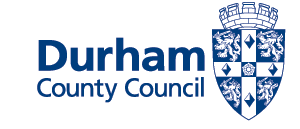Headstone inspections
Headstone inspections are carried out on an ongoing basis. Testing is important to make sure that anyone who visits, or works in our cemeteries or closed churchyards, is safe.
We are responsible for 46 cemeteries, 95 closed churchyards and 79,276 headstones and memorials across the county.
Headstone testing video transcript (PDF) [110KB]
Inspection and testing
The headstone inspection process is managed as a five-year rolling programme using a phased approach. Cemeteries and churchyards have been categorised into different phases. All headstone memorials will be inspected and where necessary we will take the appropriate steps to ensure it is safe.
Why we carry out headstone inspections
Some headstones in our cemeteries and closed churchyards are aged and in poor structural condition. This may have the potential to affect public safety. We must carry out inspections to check headstones are safe and do not present a hazard or danger to members of the public, visitors, contractors or staff.
How we carry out headstone inspections
Our Headstone inspection procedure (PDF) [3MB] explains how we carry out headstone inspections.
Please Contact Bereavement Services if you have any queries about the inspection of a headstone belonging to a loved one in any of our Cemeteries, if you're concerned about the safety of a headstone, or believe a headstone structure presents immediate danger to members of the public.
Responsibilities for headstone safety
The following people have responsibility for headstone memorial safety in our cemeteries and churchyards:
- We have a duty to cemetery staff, contractors, visitors and members of the public (Sections 2 and 3, Health and Safety at Work Act 1974) to make sure cemeteries are a safe place to work and visit.
- Under The Management of Health and Safety at Work Regulations 1999, we must also assess headstones for structural risks and ensure any potential hazards are controlled.
- A Monumental Mason has the responsibility to work in accordance with our conditions and specifications for memorials as laid down in the Cemeteries' Rules.
- An owner, the deed holder, or successor in title of a memorial, has the responsibility to maintain the headstone so it does not present a hazard.
Headstone ownership
We have overall responsibility for the safety of cemeteries and churchyards we own, including monitoring and assessing unstable headstones; but we do not own headstone memorials. Headstones belong to the deed holder or grave owner. For many old headstones, there is now no identifiable owner or next of kin.
What happens if a grave or headstone no longer has a next of kin
We will contact the last named person responsible for the grave or headstone if the information held is less than 30 years old. If we don't get a response, we will take the necessary action to make the headstone and/or memorial area safe.

 Share this page on Facebook
Share this page on Facebook
 Share this page on Twitter
Share this page on Twitter
 Print this page
Print this page





